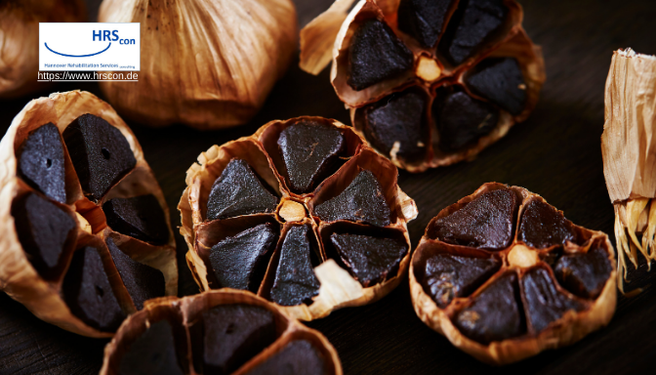Chronic inflammation is widely recognized as a significant risk factor for various cancers, including prostate cancer (PCa). With prostate cancer ranking among the most common cancers in men, researchers are continuously seeking new ways to prevent or manage the disease. A recent study shows the potential benefits of aged black garlic extract (ABGE) in combating inflammation-induced prostate damage and its ability to inhibit prostate cancer progression. The findings suggest that ABGE could serve as a promising natural therapy to manage both inflammation and cancer.
Understanding the Link Between Inflammation and Prostate Cancer
Chronic inflammation is a persistent immune response that leads to tissue damage and the eventual disruption of cellular functions. Over time, this continuous state of inflammation can promote the development of cancer by creating an environment conducive to genetic mutations and abnormal cell growth. In the case of prostate cancer, inflammation has been linked to increased levels of certain biomarkers, such as COX-2, NF-κB, TNF-α, and IL-6, which are all associated with tumor development and progression.
Researchers have long sought effective anti-inflammatory agents to mitigate the impact of chronic inflammation on cancer risk. ABGE, known for its rich antioxidant and polyphenolic content, has emerged as a natural compound with significant potential in this regard.
Aged Black Garlic: More Than a Culinary Delight
Garlic has been celebrated for centuries for its medicinal properties, particularly its antimicrobial and cardiovascular benefits. When garlic is aged, it undergoes a fermentation process that enhances its bioactive compounds, creating aged black garlic. This form of garlic is richer in antioxidants and polyphenols, particularly catechin and gallic acid, which have powerful anti-inflammatory and anticancer properties.
The recent study set out to explore whether these bioactive compounds could offer protection against inflammation-induced prostate damage and serve as a therapeutic agent for prostate cancer.
Investigating the Anti-Inflammatory Properties of ABGE
To examine the potential protective effects of ABGE against prostate inflammation, researchers employed an ex vivo model using C57BL/6 male mice. In this model, inflammation was induced in prostate tissue samples by exposing them to lipopolysaccharide (LPS), a component of Escherichia coli bacteria that triggers an immune response. This method allowed the researchers to closely simulate the conditions of chronic inflammation within the prostate.
The results were promising. ABGE significantly reduced the expression of pro-inflammatory biomarkers such as COX-2, NF-κB, TNF-α, and IL-6. These biomarkers are typically elevated in inflamed prostate tissues and are closely associated with cancer progression. The downregulation of these biomarkers suggests that ABGE can effectively modulate the inflammatory response, protecting the prostate from inflammation-induced damage.
ABGE and Prostate Cancer: A Potential Therapeutic Agent
Beyond its anti-inflammatory effects, the study also explored the potential of ABGE as a therapeutic agent for prostate cancer. Researchers conducted a series of in vitro functional assays on prostate cancer cell lines to assess ABGE’s impact on cancer cell behaviors, including cell proliferation, colony formation, tumorsphere formation, and migration.
The findings indicated that ABGE effectively inhibited cancer cell proliferation, a key characteristic of tumor growth. ABGE also suppressed colony formation, where cancer cells group together to form colonies that can eventually lead to tumor development. Furthermore, tumorsphere formation, a process that represents the self-renewal capacity of cancer stem cells, was also reduced in the presence of ABGE.
Another important finding was ABGE’s ability to inhibit cancer cell migration. Cancer cells that migrate from the primary tumor site can spread to other parts of the body, leading to metastasis—a major challenge in cancer treatment. By reducing cell migration, ABGE shows potential in preventing the spread of prostate cancer.
ABGE’s Impact on Key Signaling Pathways
Cancer cells rely on specific signaling pathways to survive, proliferate, and spread. In this study, researchers used phosphorylation arrays to examine the effects of ABGE on several key signaling pathways involved in cancer progression: MAPK, AKT, JAK/STAT, and TGF-β. These pathways play vital roles in regulating cell growth, survival, and immune response.
The study revealed that ABGE interfered with these signaling pathways, further explaining its ability to inhibit prostate cancer cell growth and migration. By targeting multiple pathways simultaneously, ABGE could offer a multifaceted approach to cancer therapy, making it harder for cancer cells to adapt and survive.
The Power of Polyphenols: Catechin and Gallic Acid
The beneficial effects of ABGE are largely attributed to its high polyphenolic content, particularly catechin and gallic acid. These compounds have been widely studied for their antioxidant, anti-inflammatory, and anticancer properties.
- Catechin, a type of flavonoid, has been shown to inhibit cancer cell growth and induce apoptosis (programmed cell death) in various cancer types, including prostate cancer. Catechin also helps reduce oxidative stress, which can damage cells and lead to cancer development.
- Gallic acid is another potent antioxidant known for its ability to scavenge free radicals and reduce inflammation. It has been shown to inhibit cancer cell proliferation and induce apoptosis, making it a valuable compound in cancer prevention and treatment.
The presence of these polyphenols in ABGE underscores its potential as a natural therapeutic agent for both inflammation and cancer.
The Road Ahead: Further Investigation and Clinical Potential
While the study’s findings are promising, further research is needed to fully understand ABGE’s therapeutic potential in prostate cancer management. Preclinical models, like the ex vivo and in vitro studies conducted here, offer valuable insights, but clinical trials involving human subjects are necessary to determine whether ABGE can be effectively translated into treatments for patients.
Additionally, researchers will need to investigate the optimal dosage and administration methods for ABGE, as well as any potential side effects. As natural compounds like ABGE gain attention for their therapeutic potential, ensuring their safety and efficacy in human populations will be critical.
Conclusion: A Bright Future for Aged Black Garlic
Aged black garlic extract (ABGE) represents a promising natural intervention in the fight against chronic inflammation and prostate cancer. With its potent anti-inflammatory, antioxidant, and anticancer properties, ABGE has demonstrated its ability to reduce inflammation-induced prostate damage and inhibit key cancer cell behaviors. Its impact on crucial signaling pathways and the presence of powerful polyphenols such as catechin and gallic acid add to its therapeutic potential.
As the global search for effective, natural cancer therapies continues, ABGE stands out as a candidate for further investigation. With continued research and clinical exploration, aged black garlic may one day be a key player in the management and prevention of prostate cancer, offering hope for a future where natural compounds complement modern cancer treatments.




